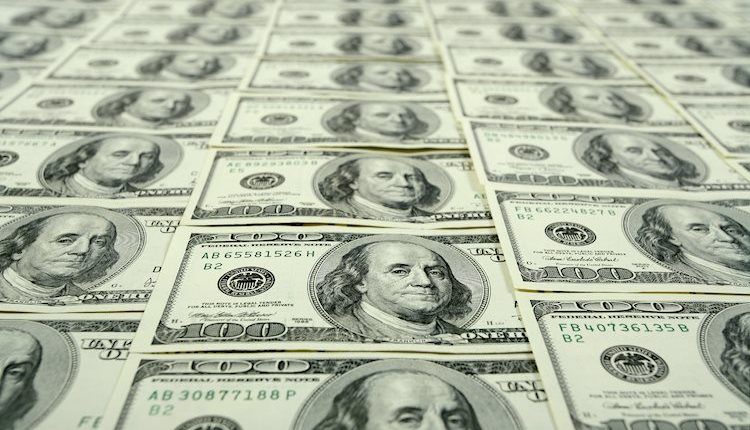- DXY hovers near 108.00 on Thursday as buyers seem to be taking a breather.
- Profit-taking emerges after Wednesday’s strong rally.
- Fed’s cautious tone spooks rate-cut optimists, which benefits the USD.
The US Dollar Index (DXY), which tracks the USD’s value against a range of currencies, pulls back from its two-year peak following signals from the Federal Reserve (Fed) about fewer interest rate cuts in the future. Federal Open Market Committee (FOMC) members express concerns about inflation continuing into 2025 and take into account possible “Trump-effect” inflationary policies, such as tariffs and reduced labor supply due to deportations.
The DXY stands at 108.00, with that level acting as support. Despite recent advances, traders are taking profits as they consider Chinese economic data and potential stimulus measures that could slow down the US Dollar’s momentum.
Daily digest market movers: US Dollar re-evaluates after hawkish Fed signals
- The two-day Federal Open Market Committee meeting ended with a 25-basis-point cut but fewer projected cuts in 2025, reflecting persistent inflation and caution over future policy moves.
- Updated macro forecasts and the dot plot show upward revisions to growth and inflation, leading to a more hawkish medium-term outlook. The median 2025 policy rate moved to 3.875% from 3.375%, dropping from four projected cuts to two.
- Chair Jerome Powell struck a cautious tone, emphasizing uncertainty and the need for tangible inflation progress. Despite Wednesday’s cut, the Fed signaled that policy easing may slow or pause, keeping the United States rate advantage intact.
- President-elect Donald Trump’s incoming policies loom large, prompting the Fed to consider potential fiscal stimulus impacts on inflation and growth. This “Trump-effect” supports the US Dollar by widening rate differentials.
- On the data front, Initial Jobless Claims improved to 220K, below the 230,000 estimate.
- In addition, the third-quarter Gross Domestic Product expanded by 3.1% annualized versus 2.8% expected, with stable Personal Consumption Expenditures and core PCE measures.
DXY technical outlook: Indicators soften as bulls pause
After Wednesday’s upward movement, technical indicators are easing for the Greenback, allowing the US Dollar Index to take a breather while it remains neutral in the vicinity of 108.30.
Although momentum has waned, the overall picture stays constructive as long as the DXY holds above its 20-day Simple Moving Average (SMA). Without fresh catalysts, the US Dollar may hover within current ranges, awaiting clearer signals before attempting another push higher.
US Dollar FAQs
The US Dollar (USD) is the official currency of the United States of America, and the ‘de facto’ currency of a significant number of other countries where it is found in circulation alongside local notes. It is the most heavily traded currency in the world, accounting for over 88% of all global foreign exchange turnover, or an average of $6.6 trillion in transactions per day, according to data from 2022. Following the second world war, the USD took over from the British Pound as the world’s reserve currency. For most of its history, the US Dollar was backed by Gold, until the Bretton Woods Agreement in 1971 when the Gold Standard went away.
The most important single factor impacting on the value of the US Dollar is monetary policy, which is shaped by the Federal Reserve (Fed). The Fed has two mandates: to achieve price stability (control inflation) and foster full employment. Its primary tool to achieve these two goals is by adjusting interest rates. When prices are rising too quickly and inflation is above the Fed’s 2% target, the Fed will raise rates, which helps the USD value. When inflation falls below 2% or the Unemployment Rate is too high, the Fed may lower interest rates, which weighs on the Greenback.
Read the full article here

